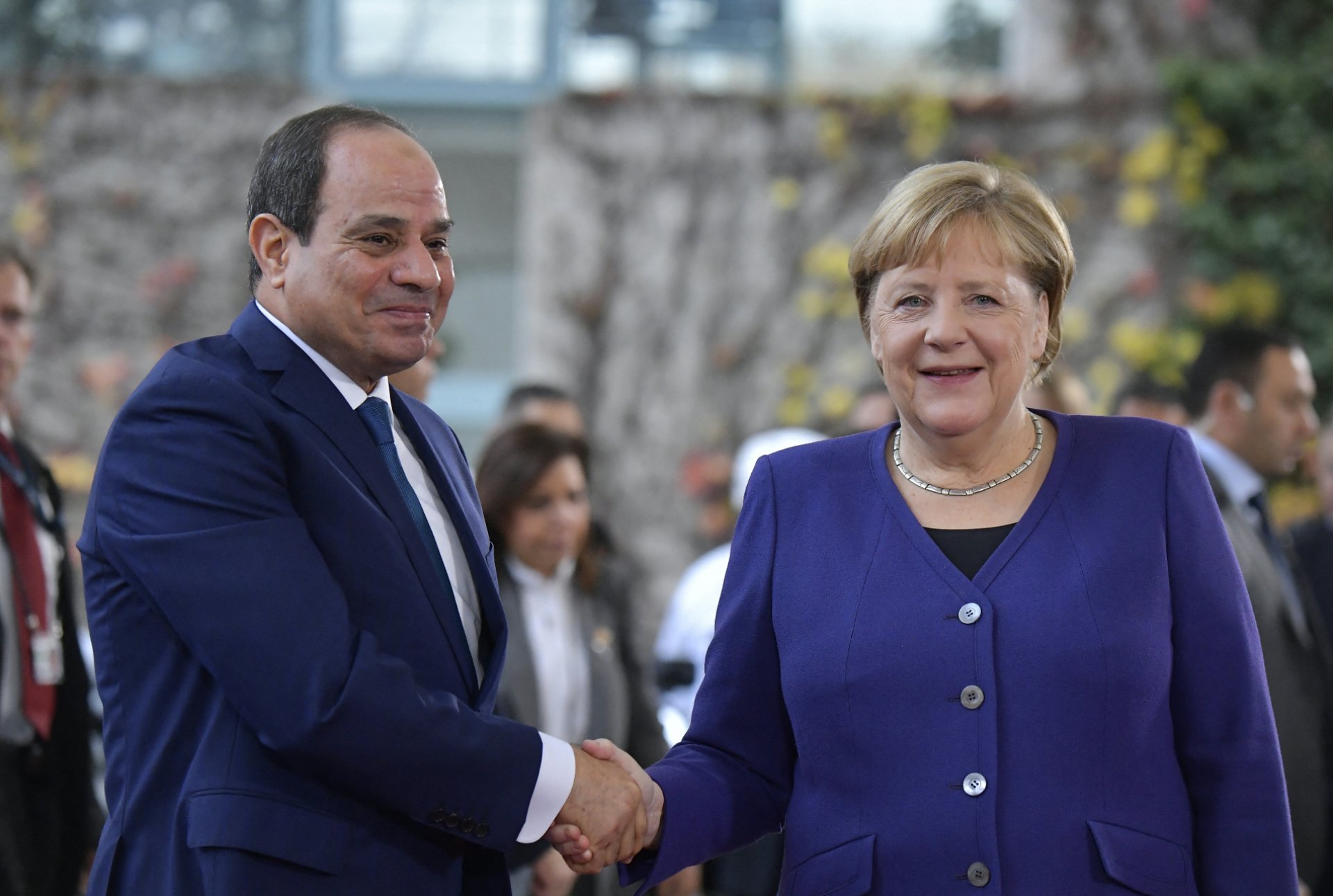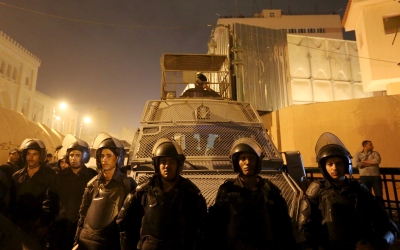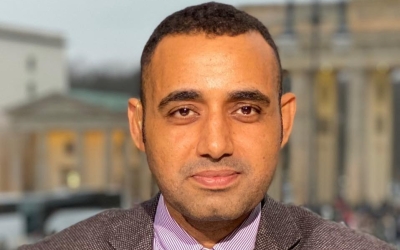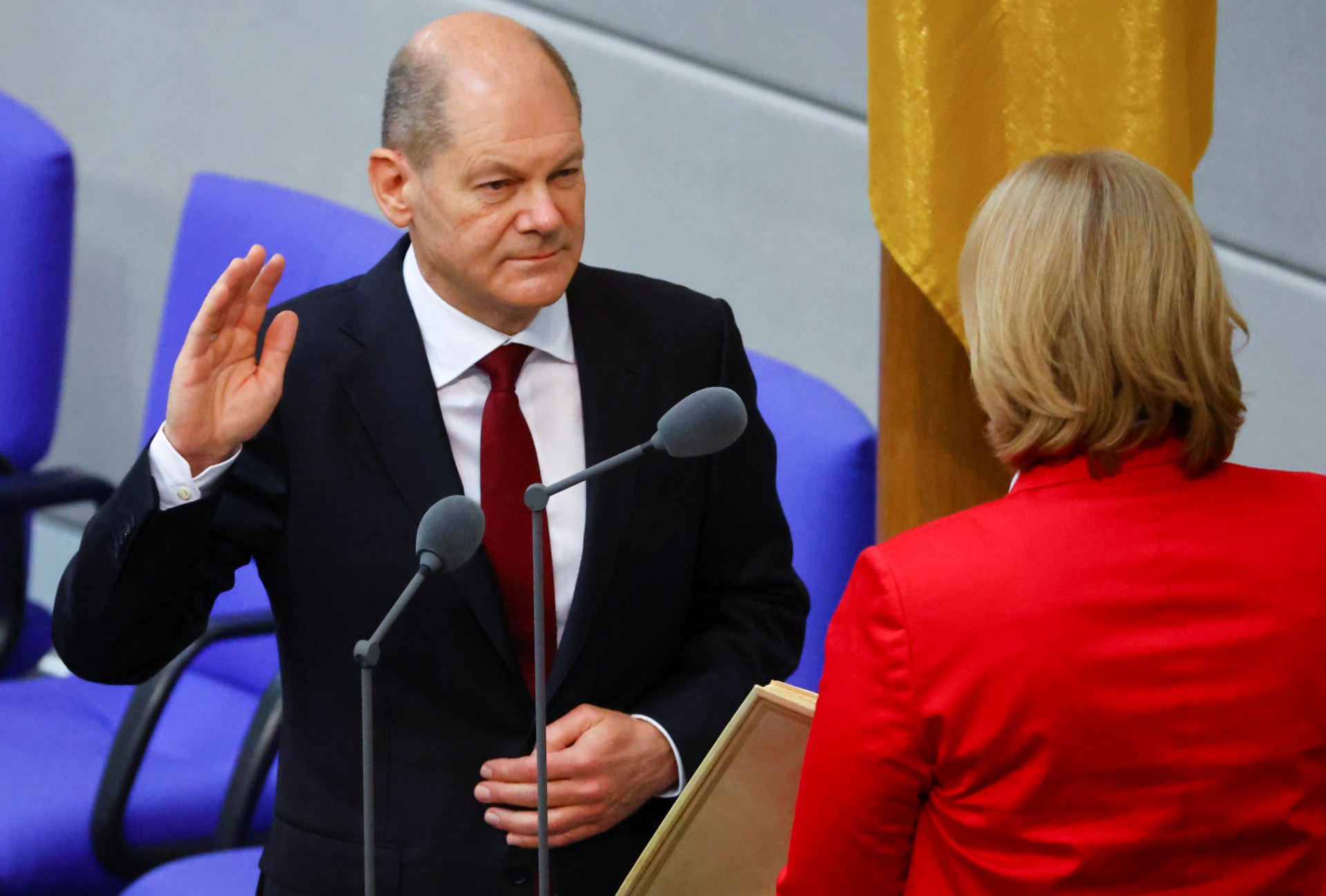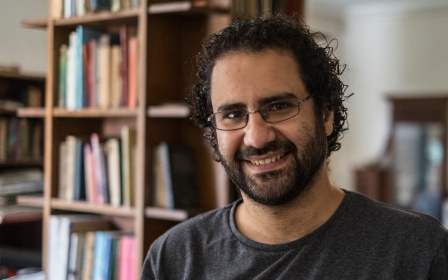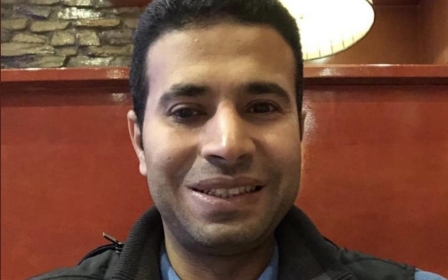Egyptians in Germany fear long reach of Sisi's repression
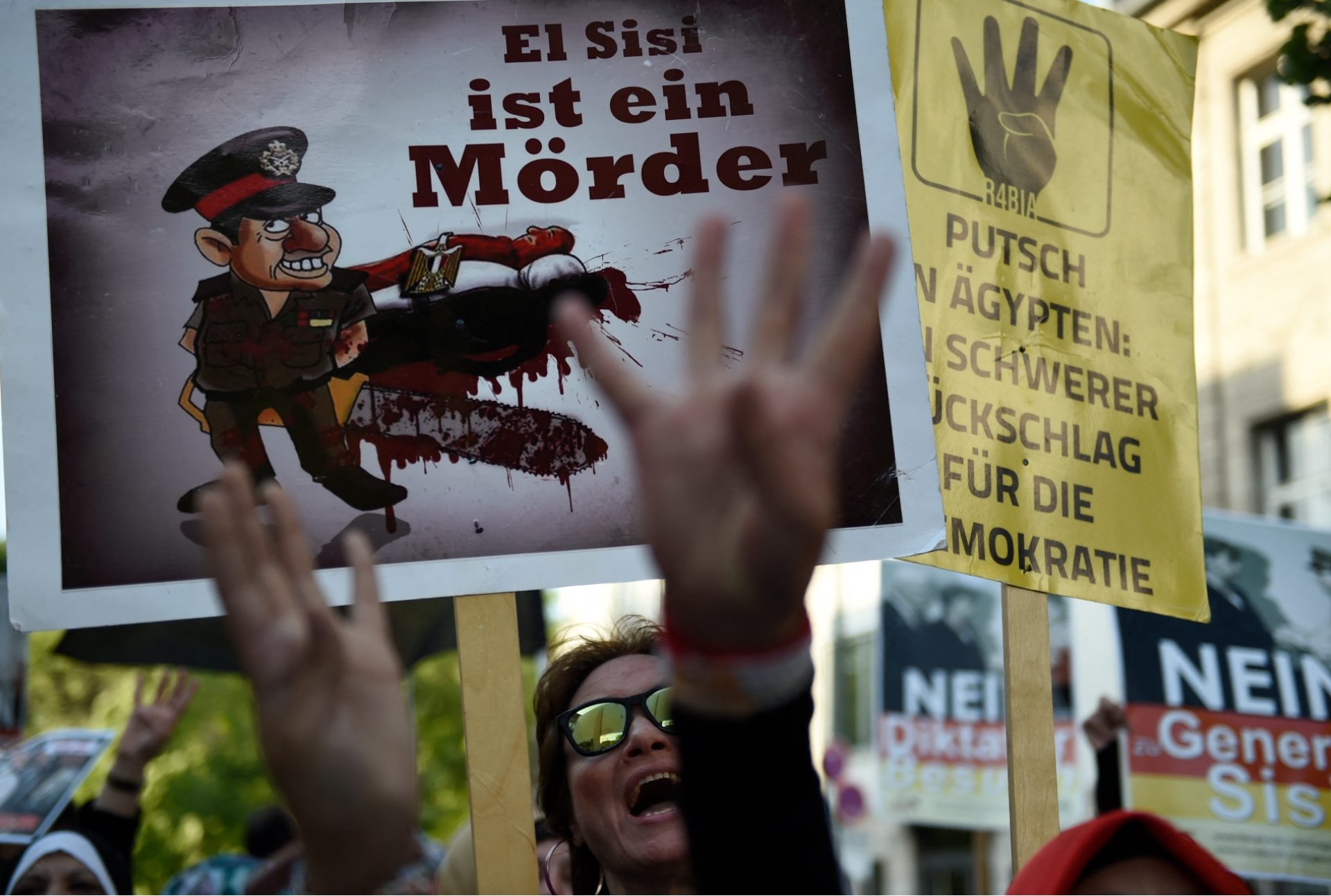
Egyptian dissidents living in Germany are being threatened and spied on by their country's feared intelligence service, and they say their situation has become more dangerous since Berlin signed a security pact with Cairo in 2017.
Dissidents in Germany also told Middle East Eye they risk arrest if they return home, and fear retaliation against their families in Egypt as part of a campaign by President Abdel Fattah el-Sisi's government to stifle dissent abroad.
In one case, an Egyptian man based in Berlin told MEE he believed he had been arrested and jailed in Egypt for attending an anti-Sisi protest during a visit to the German capital by the Egyptian president in 2015.
Mohamed, who, like others who spoke to MEE, did not want to be identified by his real name because of security concerns, said he had been photographed at the demonstration by people who he believes were working for Egypt's intelligence service.
Mohamed said he did not consider himself to be a political activist at the time of the demonstration. But he decided to attend because he objected to Germany hosting Sisi despite his government's disregard for human rights and its persecution of political opponents since the military coup that brought Sisi to power in 2013.
New MEE newsletter: Jerusalem Dispatch
Sign up to get the latest insights and analysis on Israel-Palestine, alongside Turkey Unpacked and other MEE newsletters
'Germany is fast losing its leverage over Egypt. The criticism from western capitals, I don't think the Egyptians take it seriously any more'
- Stephan Roll of the Institute for International and Security Affairs
While at the demonstration, Mohamed got into an argument with supporters of Sisi, and it was during this row that he believes his photo was taken.
In late 2015, Mohamed travelled home to Egypt, where he was arrested, charged and convicted of staging illegal protests in Egypt. He says he was not in the country at the time of the protests, but was sentenced to two years in prison.
"In hindsight, it was a foolish idea to travel to Egypt," he said. "They charged me with protesting at locations in Cairo while I wasn't even there. They just wanted to put me in jail. Sisi doesn't like people criticising him."
Economic and security ties
Mohamed told MEE he had been released and allowed to return to Germany after serving half of his sentence, following diplomatic pressure from Germany and other European countries. But he said closer economic and security ties between Egypt and Germany, despite human rights concerns, had made the situation worse for Egyptians critical of the government.
Sisi's visit to Berlin in 2015 came on the back of a series of multibillion-euro deals benefiting German companies, including an $8bn contract to develop Egypt's energy infrastructure signed by German energy giant Siemens at an economic conference in Sharm el-Sheikh earlier in 2015.
Egypt has also become one of the biggest buyers of German weapons and military equipment, spending an estimated $900m in 2019 and $850m in 2020.
In 2017, Egypt signed a controversial security partnership agreement with Germany. The deal facilitated intelligence sharing and data sharing between German police and security agencies and the Egyptian interior ministry, and cooperation in areas including counter-terrorism, people trafficking and organised crime.
According to several accounts heard by MEE, staff numbers at the Egyptian embassy in Berlin nearly doubled after the deal was signed.
"That's when the situation became really bad for us," said Mohamed.
Many exiles and dissidents had spoken out or campaigned publicly against the security cooperation deal, he said, and their activities had not gone unnoticed.
Family homes raided
Mohamed said many had been the targets of cyber attacks against their social media and email accounts. He said he now changed his phone regularly because he suspected his devices had been hacked and monitored.
"Even now, all our events are monitored by Egyptian officials," he said. "Attendees are photographed, and then Egyptian agents write reports about what was discussed and send those in with names and photographs of everyone. This often results in the targeting of the families of those involved."
Mohamed said his own family home in Egypt had been raided by security forces in 2019.
"What scared me was, when the Egyptian authorities raided my family home and were searching for my mother, no one cared. I called everyone I know in Germany - politicians and activists - but no one helped."
MEE has spoken to three other Egyptian exiles in Germany who recounted similar experiences of threats and harassment of their families in Egypt. Their stories match those corroborated by research at Human Rights Watch (HRW).
In February 2021, MEE reported about raids on the family home in Egypt of another Egyptian dissident currently based in Berlin. Academic and political activist Taqadum al-Khatib told MEE that Egyptian security forces had raided his family home and interrogated his parents about his activities abroad.
Khatib had previously been fired from his job at a university in Egypt after an Egyptian embassy official in Berlin had questioned him about his social media posts, articles and research.
Amr Magdi, Middle East and North Africa researcher at HRW, told MEE that the US-based rights monitor had documented dozens of cases of raids on the family homes of exiled dissidents since 2016.
"The situation is getting worse," said Magdi. "Families have been blocked from travelling abroad, their homes have been raided in the middle of the night, family members have been arrested without charge and put through tough interrogations to spread fear and intimidation.
"Egyptian intelligence has deployed agents across Europe to keep an eye on critics of the Sisi regime. As a result, exiled Egyptian journalists are now self-censoring themselves, academics are choosing less sensitive topics.
"Other people of Egyptian origin, such as members of the Christian Coptic communities, may also come into the focus of the intelligence services. According to reports, Egyptian services are trying to win over compatriots living in Germany for intelligence purposes."
Egyptian intelligence agencies' activities in Germany were also flagged up in a 2019 German intelligence report which said they operate mainly to gain knowledge about opposition members living in Germany, such as members of the Muslim Brotherhood.
Among Egyptian activists and human rights campaigners there is hope that Germany's new centre-left coalition government, headed by Chancellor Olaf Scholz, will look again at the country's security relationship with Egypt and the activities of Egyptian intelligence agents on German soil.
Security pact frozen
According to Stephan Roll, head of research for North Africa and the Middle East at the Institute for International and Security Affairs (SWP), a Berlin think-tank that advises the German government and parliament, the intelligence-sharing agreement with Egypt had already been frozen.
"German officials know what's going on," Roll told MEE, citing concerns in Germany about torture, human rights abuses, and Egypt's use of Interpol notices to target dissidents abroad.
He said German authorities had sent a strong message in December 2019 when police arrested a German citizen of Egyptian descent on charges of spying for Egypt while working in the press office of then-Chancellor Angela Merkel.
In March, the man, known as Amin K, pleaded guilty and received a suspended prison sentence of one year and nine months.
"Over the years, it's become very obvious that this security agreement wasn't viable... German authorities know they cannot trust the Egyptian government," said Roll.
But Roll said German business interests in Egypt, and a continuing desire for Egyptian cooperation on counter-terrorism issues and controlling the flow of people migrating from North Africa to Europe via boats across the Mediterranean, made it difficult for the government to consider any firmer action against Cairo.
"Germany is fast losing its leverage over Egypt. The criticism from western capitals, I don't think the Egyptians take it seriously any more. Right now it's just about business."
MEE asked the German foreign ministry whether it would look again at the country’s relationship with Egypt in light of the threat to Egyptian dissidents in Germany and their families in Egypt, but had not received a response by the time of publication.
In Berlin, Mohamed told MEE he had been forced to apply for asylum after being denied consular services by the Egyptian embassy. His application was accepted just three days later.
"That is a sign that the German government is looking after me," he said.
But he said he had given up any activism, out of concern for the safety of his family and for his own wellbeing.
"I now keep a low profile and live a quiet life," he said. "I'm still struggling to get back into my profession and sometimes suffer from anxiety and depression, but at least I'm safe."
Middle East Eye delivers independent and unrivalled coverage and analysis of the Middle East, North Africa and beyond. To learn more about republishing this content and the associated fees, please fill out this form. More about MEE can be found here.


